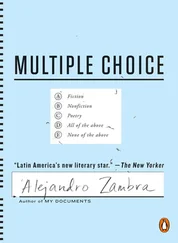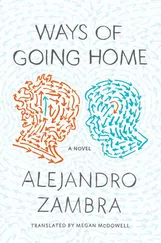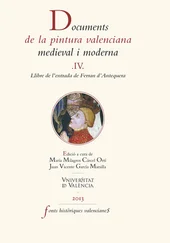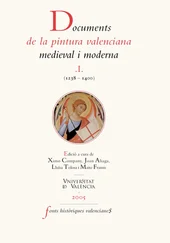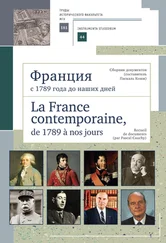That afternoon, when we got home, there was a soccer match. I don’t remember which one, but Colo-Colo was definitely playing, and Camilo stayed to watch it with us. My father asked him why. “I don’t have a father,” Camilo said. “You’re my godfather, so you have to teach me about soccer. Otherwise,” he warned, winking at me, “I’ll turn out to be a fairy.”
It became routine for Camilo to watch the games with us, but I don’t know if my dad enjoyed it. The questions Camilo asked were so simple and off-base that, before long, boredom overcame us.
***
On December 4, 1987, I committed a mortal sin. Los Prisioneros had just released La cultura de la basura , their third album; I was dying to buy it, but I didn’t have a single peso. I considered stealing again, but I didn’t think I could do it — that time with the Talking Heads had been a spontaneous flash of inspiration. Then I had a better idea: since the annual Telethon was happening that day, I asked my parents for money to help the handicapped children, and then I headed off to the store and bought the cassette.
I had a terrible time of it. I locked myself in my room to listen to the tape, and at first every song sounded, in one way or another, as if it were about my act of villainy. I decided that I had to go to confession, but I was afraid of the priest’s reaction. “Confess to me,” Camilo said, when I told him I felt guilty. “What do you need to go blabbing your business to a priest for? Also, I’ll tell you straight off: masturbating is not a sin. I think even Jesus whacked off a few times thinking about Mary Magdalene.”
I laughed so much I felt giddy. Never in my life had I heard such heresy. There was a picture of Jesus above the table in the living room, and from then on I could never look at it without thinking that he was making that face after ejaculating. Anyway, I had never thought that masturbation was a sin. When I told Camilo what I had done, he told me that the telethon met its goals through the sponsorships alone, and that maybe I had needed that cassette, maybe I had done the right thing. “I don’t understand,” I said.
“Okay,” he pronounced. “If you still feel guilty, pray that one prayer where you have to hit your chest.”
“What about your godmother? Have you seen her?” I asked him one morning — in those days he used to stay over and sleep in the living room. He’d get up early and come back from the market with a watermelon, because it was summer. He said yes, that she was still his mother’s best friend.
“And you? Do you have godparents?”
“Yeah, my aunt and uncle, my mom’s brother and sister.”
“That’s no good,” he said. “The idea is that they aren’t family. Aunts and uncles will give you presents anyway. I think my father should be your godfather,” he told me very seriously. “When I go see him I’m going to ask him to be your godfather.”
Camilo still insisted that we teach him about soccer, and sometimes we practiced penalty kicks in the street. But my father would get fed up; he said that Camilo didn’t concentrate, that his interest wasn’t serious. Still, one weekend the three of us went to the Santa Laura Stadium to watch a double-header. First it was Universidad de Chile against Concepción. Camilo, to my father’s and my annoyance, had decided to root for the U, which had been his father’s team, although of course he didn’t even know the players’ names. He liked the way that everyone in the stadium criticized and shouted at the players, but was surprised to see that they got angry with the ref. He decided to come to his defense, and although at first people didn’t take it well, it was truly funny to hear Camilo, every time the ref called a foul or carded a player, stand up and yell, “Very well done, sir! Excellent decision!”
Camilo kept cheering on the referee during the next match, which was between Colo-Colo and Naval, I think. I joined him for a while, even though watching Colo-Colo was to me a very serious matter. I had grown up admiring Chino Hisis, Pillo Vera, Carlos Caszely, Horacio Simaldone, and, of course, Roberto Rojas—“el Cóndor.” I had hated some players too: Cristián Saavedra (I don’t know why) and, during the period when the coach inexplicably used to make him and Rojas alternate as starters, Mario Osbén. That infuriated me. One of the great joys of my childhood was going down to the fence to yell at the coach, and I’d really let him have it. At home, cursing was strictly forbidden, but at the stadium I had free rein.
None of those players were on the team anymore that day at the stadium with Camilo, but the one I missed the most was obviously Cóndor Rojas. All Chileans admired Rojas, but for me, because he was a goalie, it was also a roundabout way of admiring my father. What’s more, I knew the position perfectly, and I considered the goalie’s job to be without a doubt the hardest. Sometimes I played goalie too, trying to emulate Cóndor Rojas, or maybe my father (in all but the shouting). Still, when I joined the Cobresal Youth leagues, in Maipú, playing on the same field where Iván Zamorano began his career, I tried out as a midfielder and not a goalie. I was afraid, perhaps, that I wouldn’t be good enough.
***
Why did Camilo spend so much time with us? Because we loved him, sure. And because he didn’t like being at his own house. He fought with his mother about his religious beliefs and about the political situation. Before the 1988 referendum, Camilo went to all the demonstrations in favor of the “No” vote, and that led to severe arguments. He wanted “No” to win because he hated Pinochet, but also because he thought that, if it did, his father would come back to Chile. But Camilo’s father didn’t want to come back, or at least that’s what Auntie July always told him: “Your father has another family now. He has another country. He doesn’t even remember you.” But Camilo’s father still wrote to him, sent him money, and called him every once in a while.
Auntie July was tough. Even so, she treated us very well the one time we went over to her house. She gave us bread cake and banana milk while we played Montezuma’s Revenge with Camilo’s halfbrothers. It was strange to see Camilo there. He didn’t seem to belong. I went into his room, and it was as if he didn’t live there. He used to give my sisters and me posters and pictures to hang on our walls, but there was none of that in his own room: I was impressed by those white, empty walls, without even a nail to hang a photograph.
Oh, what did Camilo study? Administration or Management of Something, at the Universidad Tecnológica Metropolitana, which back then was called the Instituto Profesional de Santiago. But he didn’t like to study. Once, he tried to give me math lessons, but it didn’t work out, and, anyway, I didn’t really need them. Nor do I know if he read much, though I feel like he did. Now I sometimes think, from this suspiciously stable place that is the present, that Camilo was immature. But no. He wasn’t. Or he also had another side, an intuitive, generous, perceptive side.
He’d been there with us, in front of the TV, when Cóndor Rojas faked his injury in Brazil and the Chilean team walked off the field at the Maracaná. My father and I couldn’t believe what we were seeing, and Camilo was distraught too. “Fucking Brazilians!” I shouted, to see if anyone would scold me, but no one did. My father sank into furious silence. Camilo immediately set off downtown, and he was part of the crowd that protested in front of the Brazilian Embassy. I wanted to go with him, but my parents wouldn’t let me, and I had to swallow my rage.
One evening, while the subject was still being debated and Cóndor Rojas was still giving interviews in which he proclaimed his innocence, Camilo came over to eat with us and said that he no longer believed that Cóndor was innocent. By then the rumors were already circulating, but my father and I considered them defamatory. My father looked at Camilo with contempt, almost with hatred. “You don’t have the right to an opinion. You don’t know anything about soccer,” he told him. “Do you really think that Cóndor would be stupid enough to do something like that?” When Rojas finally admitted he was guilty, that he really had hidden a razor blade in his glove to fake his injury, we had no choice but to accept it. We apologized to Camilo then, but he said he didn’t think it was at all important.
Читать дальше

